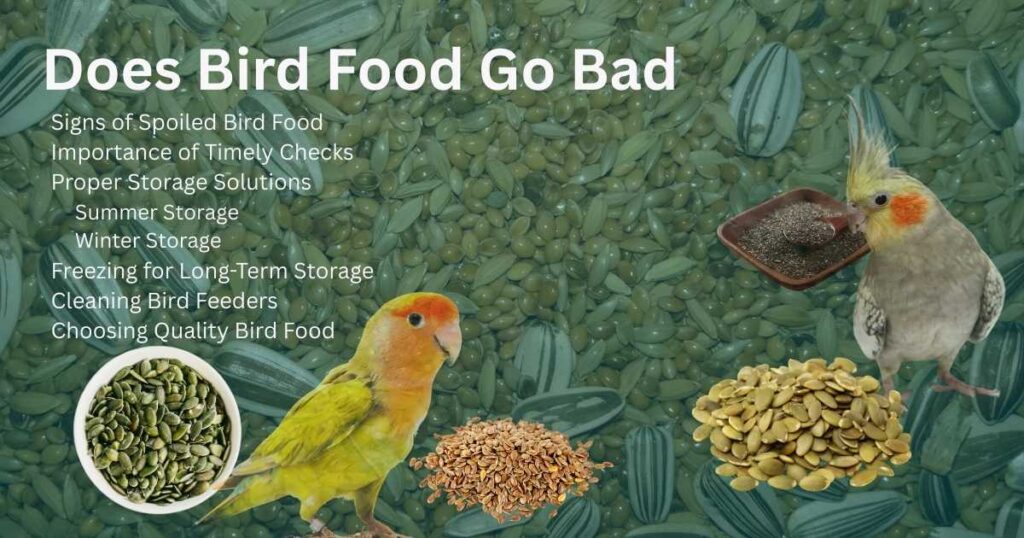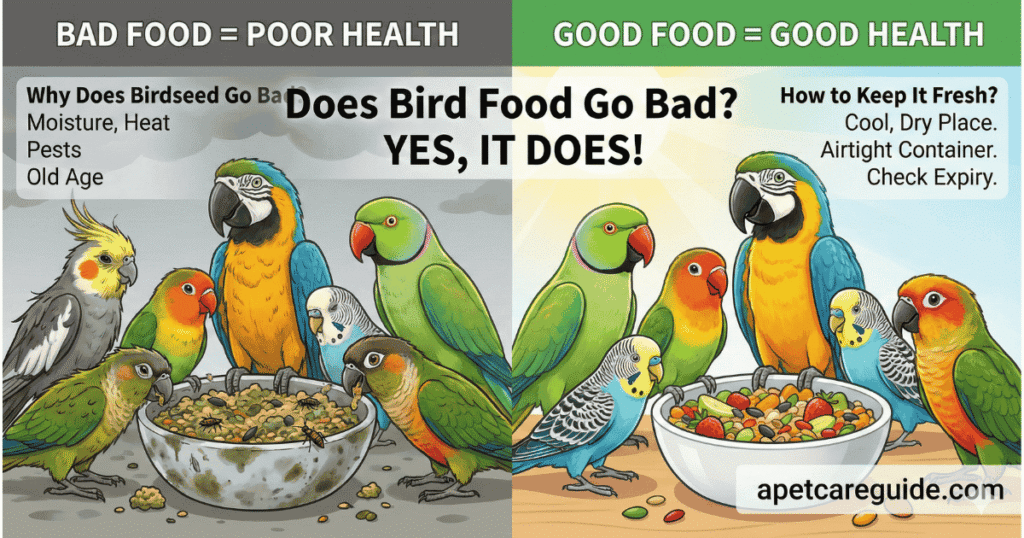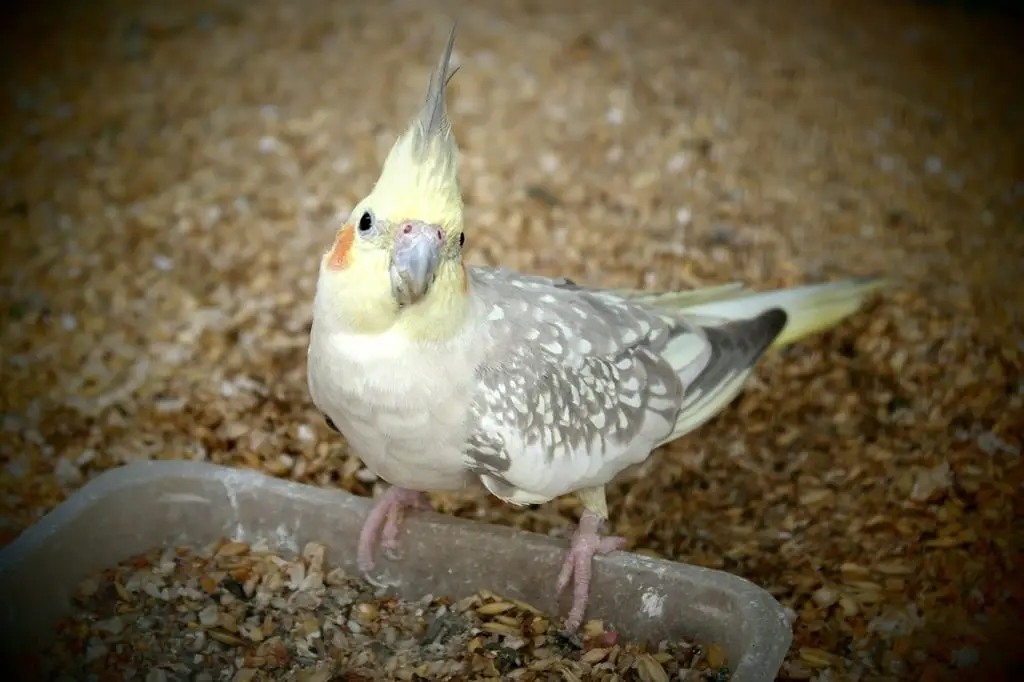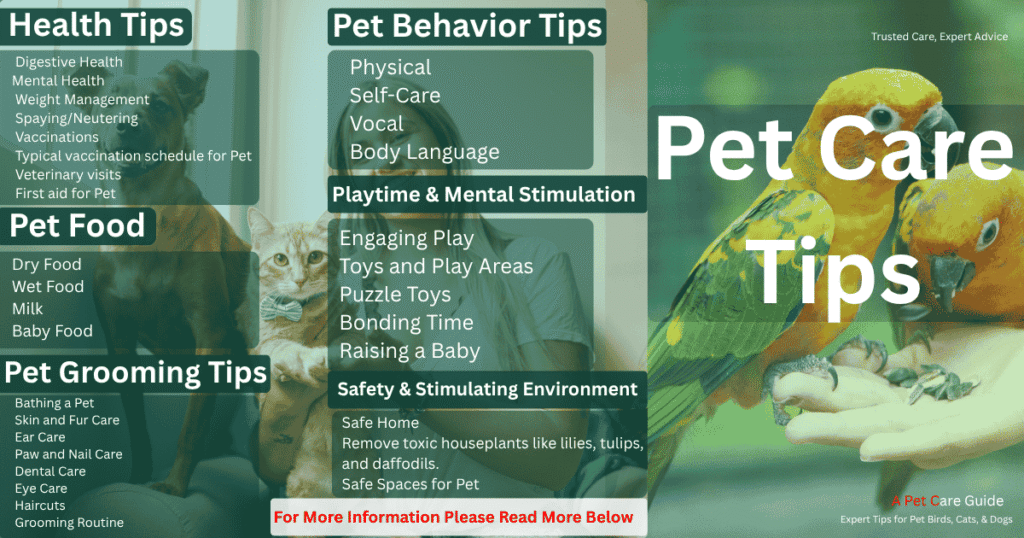As someone who loves watching pet birds at my home, I’ve learned that keeping their food fresh is just as important as keeping them in front of my loving birds. The question: Does bird food go bad? is one every bird enthusiast should ask, and the answer is a definite yes. Spoiled bird food not only deters birds but can also make them sick and attract unwanted pests like rodents and insects.
This article is my way of sharing what I’ve learned over the years, a sort of personal pet care guide for our feathered friends. My goal is to give you clear, easy-to-follow tips for storing and handling bird food correctly so you can always provide a safe and healthy meal at your feeders. So now A Pet Care Guide to start sharing my experience with you.
Why Does Birdseed Go Bad?
Understanding why seed spoils is the first step in preventing it. It’s not just about time; several factors can ruin a perfectly good bag of birdseed.
Environmental Conditions:
Heat: Warm temperatures can be a real enemy of bird food. Heat makes the oils in seeds, especially high-oil seeds like sunflower and Nyjer, turn rancid much faster. You’ll notice this more in the hot summer months. So avoid heat as much as possible.
Humidity: High humidity is another major problem. The moisture in the air can slowly seep into your bird food, creating the perfect environment for mold to grow.
Moisture: Direct contact with moisture, like rain or even morning dew, is a guaranteed way to spoil bird food quickly. Wet seeds clump together and start to decompose.
Type of Seed:
Different seeds have different staying powers. For example, sunflower seeds with their high oil content can spoil faster than millet.
Some seeds, like the tiny Nyjer (thistle) seed, have a surprisingly short shelf life. This is because it is heat-sterilized before being sold to prevent the germination of invasive thistle plants, a process that also shortens its freshness. So, if you’re asking, Does bird food go bad even if it’s new? The answer for Nyjer seed can be yes, much quicker than you’d think.
Seasonal Considerations:
Winter vs. Summer: In winter, birds eat a lot more to stay warm, so the food in your feeders gets replaced more often. This naturally helps keep it fresh. In summer, however, birds may eat less from feeders when natural food is abundant. This, combined with summer heat and humidity, creates a perfect storm for spoilage. The question of does bird food go bad becomes even more critical during these warm, damp months.
How to Tell If Bird Food Has Gone Bad

After years of feeding birds, I can spot spoiled food from a mile away because I am an expert pet bird owner. You need to use your senses: sight, smell, and touch. Here are the clear giveaways that answer the question, Does bird food go bad?
Signs of Spoiled Bird Food:
Mold and Mildew: Look for white, black, or greenish fuzzy spots. You might also notice a damp, musty smell. This is the most dangerous sign, as mold can be very harmful to birds.
Clumping: If the seeds are stuck together in hard lumps, it means they’ve been exposed to moisture and are on their way to ruin.
Unpleasant Odor: Fresh birdseed has a nutty, earthy smell. Spoiled seed, on the other hand, will smell sour, rancid, or just plain off. Trust your nose.
Pests: Finding insects, tiny pantry moths, larvae, or their webbing is a bad sign. Also, watch out for any signs of rodents, like droppings.
Sprouting Seeds: If you see little green sprouts coming from the seeds, it means they have been wet for too long.
Visual Changes: The seeds might look faded, dark, or discolored compared to a fresh batch.
Peculiar Odor: This is worth repeating. Any smell that is not fresh and earthy is a red flag.
Insect Infestation: Bugs mean the seed has been improperly stored and is no longer good for your birds.
Clumping or Stickiness: This indicates moisture and the start of decomposition.
Sprouting: A clear sign of prolonged dampness.
Bird Disinterest: Sometimes, the birds tell you first. If they suddenly stop visiting a full feeder, check the food immediately. They know when something isn’t right.
Importance of Timely Checks:
You should give your bird food a quick check every time you refill the feeder. During rainy or humid weather, I make it a point to check it every couple of days. This simple habit prevents you from ever having to wonder, Does bird food go bad in my own feeder?
Best Practices for Storing Bird Food
Proper storage is your number one defense against spoilage. A little effort here goes a long way.
Proper Storage Solutions:
Airtight Containers:
The paper or plastic bags that bird food comes in are not meant for long-term storage. I always transfer my seed into metal or hard plastic containers with tight-fitting lids. This keeps moisture and pests out.
Cool and Dry Storage:
Find a spot in your home that is consistently cool and dry. A closet, pantry, or cool basement is perfect. This helps a lot when you worry about whether does bird food go bad.
Storage Areas to Avoid:
Stay away from places with fluctuating temperatures or high moisture. This includes sheds, garages that get hot in the summer, laundry rooms, or next to a sunny window.
Freezing for Long-Term Storage:
If you buy a large amount of seed, freezing is a fantastic option. It stops the oils from going rancid and kills any insect eggs that might be present. It dramatically extends the shelf life.
Buy high-quality seed:
Fresh, high-quality seed from a reputable store will last longer than cheap filler mixes.
Use the right container: Again, think metal or sturdy plastic with a secure lid.
Regularly check for seed freshness: Make it a habit to inspect your stored seed every few weeks.
How to Maintain Freshness and Prevent Spoilage
Beyond storage, how you handle the food at the feeder is also key.
Mixing New and Old Seeds:
It can be tempting to just top off a feeder, but you should avoid this. If there’s any old, potentially spoiled seed at the bottom, it can contaminate the entire fresh batch.
Always empty the feeder of old seed before adding new. This simple step ensures your birds are always getting the best.
Frequent Refills:
In warm or wet weather, it’s better to only fill feeders with enough seed for one or two days. This frequent replacement is the best way to prevent mold and spoilage.
When someone asks me, Does bird food go bad in the feeder? I tell them it absolutely can, especially if it sits too long in the rain.
Cleaning Bird Feeders:
A dirty feeder can make fresh food spoil faster. You should clean your feeders every one to two weeks.
To clean them, take them apart and scrub with a solution of one part bleach to nine parts water. Rinse them thoroughly and let them dry completely before refilling.
Types of Bird Food and Approximate Shelf Lives
Bird Seed and Mixes:
Stored properly, most seed mixes (like those with sunflower, millet, and cracked corn) can last for 6 to 12 months.
Suet Pellets and Cakes:
Suet is fat, so it can go rancid. It will last about 6 months in a cool place, but much longer if frozen. In hot weather, use no-melt varieties.
Peanuts and Nuts:
Shelled peanuts can spoil quickly due to their high oil content. It’s best to buy smaller quantities and store them in the freezer. They can last up to a year frozen.
Mealworms:
Dried mealworms can last for over a year if kept dry. Live mealworms must be used within a few weeks.
Nyjer Seed:
As mentioned, this seed has a shorter shelf life. Try to buy only what you can use within a month or two for the best results.
Seasonal Bird Food Storage Tips
Your storage strategy might need to change with the seasons.
Summer Storage:
During hot, humid months, spoilage is a huge risk. Buy smaller bags of seed more often. If you have a large amount, store the excess in the freezer.
Moisture is the big enemy in summer, so keeping storage containers sealed tightly is absolutely critical.
Winter Storage:
Cold weather is great for preserving bird food. You can often store it for longer periods without worry.
Remember that birds eat much more in the winter, so even though the food lasts longer, you’ll be refilling feeders more often, which helps keep the supply fresh. This reduces the worry over does bird food go bad.
How to make bird seed last longer and not go bad
From all my experience, here is the quick-and-dirty checklist to make your bird seed last. If you’re tired of asking, Does bird food go bad? and want to stop it, this is for you.
- Buy Fresh: Purchase seed from a store with high turnover.
- Store Smart: Use a clean, dry, airtight container.
- Keep it Cool: Store the container in a cool, dark place.
- Freeze It: For long-term storage, the freezer is your best friend.
- Small Portions: Only put a few days’ worth of seed in feeders at a time, especially in bad weather.
- Clean Feeders: Wash your feeders regularly to prevent contamination.
- Never Mix: Don’t top off old seed with new.
The Best Practices for Bird Food Purchase
Smart buying habits are your first line of defense.
Buying in Bulk:
Buying in bulk can save money, but it’s a bad deal if the food spoils. It’s a good idea in winter when you use a lot, but in summer, it can be risky.
I recommend buying only what you can reasonably use in a 2-4 week period during warm months. Your birds will thank you for the fresh meals.
Choosing Quality Bird Food:
Look for food that appears clean, with whole seeds and no dust or debris.
Always check for a best-by or expiration date on the bag. Avoid bags that are close to this date. Wondering does bird food go bad before its date? It can if stored improperly at the store, so always do a visual check.
Troubleshooting Common Bird Food Issues
Even with the best planning, problems can happen. Here’s how to handle them.
Handling Spoiled Bird Food:
If you find spoiled food, don’t try to save any of it. Throw it all away in a sealed garbage can.
After discarding the food, you must thoroughly clean and disinfect the container or feeder before using it again.
Preventing Pests:
The key to stopping pests is secure storage. Metal cans are great because rodents can’t chew through them. Make sure lids are always on tight.
If you see any signs of an infestation in your stored seed, discard the entire batch. It’s not worth the risk. It’s a sad but true answer to the question does bird food go bad.
Final Thoughts About Does Bird Food Go Bad
So, let’s wrap this up. The most important things I’ve learned about keeping bird food fresh are simple: use airtight containers, store them in a cool and dry place, check the food often for any signs of spoilage, and keep your feeders clean. Making these small actions a regular part of your bird-feeding routine will protect the health of your backyard visitors and make your feeding station a much more popular spot. You’ll never have to worry about the question of does bird food go bad again.
Now, take a moment to look at how you’re currently storing your bird food and see if you can make a few improvements. I also invite you to share this article with your friends and family who love birds. Spreading good practices helps the entire bird-loving community and, most importantly, helps the birds we all adore.
FAQ about does bird food go bad
How long does bird seed last in the feeder?
In dry weather, it can last for a week or two. However, in wet or humid conditions, it can spoil in just a few days. It’s best to only put out enough for 1-3 days at a time.
Is it safe to use old bird seed?
No. Old bird seed can lose its nutritional value, and more dangerously, it can grow mold that is toxic to birds. Always err on the side of caution and discard it.
Can I freeze bird seed to make it last longer?
Absolutely! Freezing is one of the best ways to extend the life of bird seed, especially high-oil seeds. It prevents oils from going rancid and kills insects or their eggs.
Will rancid seeds make your bird sick?
Yes, rancid seeds and especially moldy seeds can make birds very sick. They can cause respiratory infections and digestive problems. This is a key reason why the question does bird food go bad is so important.
Do bad seeds sink or float?
This is a common test for seeds you plan to plant, but it’s not a reliable way to check for spoilage in bird food. The best way is to use your senses of sight and smell.
What should I do with spoiled bird food?
You should seal it in a bag and throw it in the trash. Do not compost it, as it can attract pests and spread mold. Thoroughly clean and disinfect any containers or feeders that held the spoiled food.
How long does bird seed typically last?
When stored correctly in a cool, dry, airtight container, most bird seed can last from 6 to 12 months from its packaging date.
Is it okay to use bird seed that got a little wet?
No. Once bird seed gets wet, mold can begin to grow very quickly, sometimes before it’s even visible. It’s safest to discard any seed that has been exposed to moisture.
How can I prevent bird food from going bad?
The best prevention is a three-part strategy: buy fresh seed, store it in a cool, dry, airtight container away from sunlight, and use it in a clean feeder that you don’t overfill.
How do I store bird food in hot weather?
In hot weather, store it in the coolest part of your house or, even better, in the refrigerator or freezer. Buy smaller quantities more frequently to avoid long-term storage issues.
Is it safe to mix old bird seed with new seed?
No, this is not a good practice. If the old seed is starting to spoil, it will contaminate the entire fresh batch. Always empty feeders completely before refilling them. A lot of people ask does bird food go bad if they do this, and the answer is yes, it will go bad much faster.


